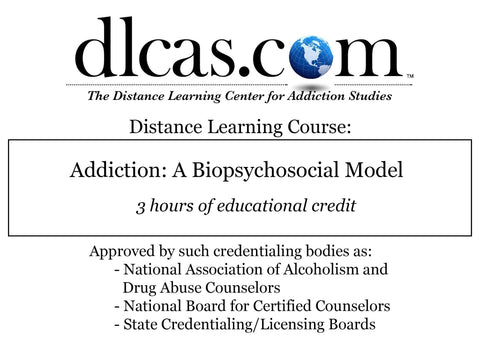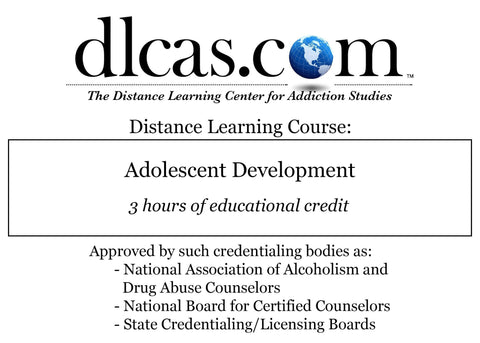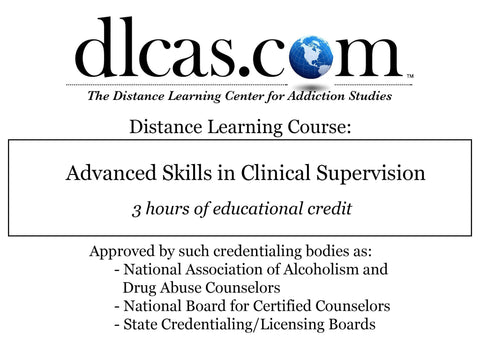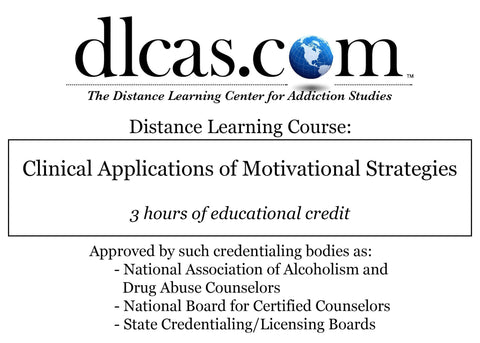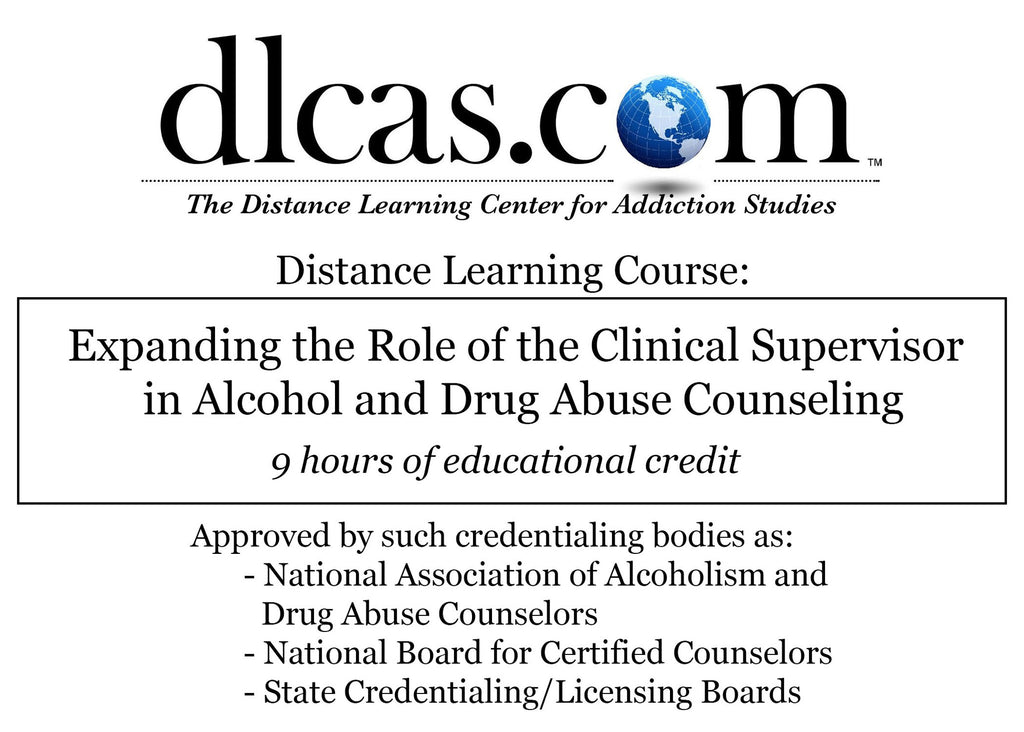
Expanding the Role of the Clinical Supervisor in Alcohol and Drug Abuse Counseling (9 hours)
This 9 hour course by David Powell will provide education and insights into the issue of clinical supervision. It is intended to meet the recertification requirements for counselors holding the the Certified Clinical Supervisor credential offered by IC&RC Member Boards. This is an original course developed from the work and teachings of David Powell, and is designed to expand on the information found in his book Clinical Supervision in Alcohol and Drug Abuse Counseling.
Goals/Objectives
By participating in this Distance Learning Course, the trainee will:
Assessment and Evaluation- Provide three definitions of supervision: supervision as counseling (a therapeutic process), supervision as education, and supervision as consultation.
- Provide their own definition of clinical supervision.
- Identify evaluation skills in assessing counselor competency.
- Demonstrate five intervention skills.
- Demonstrate skills in giving feedback to counselors.
- Demonstrate knowledge of three indirect and three direct methods of observation.
- Differentiate between case management and clinical supervision.
- Define the four foci of clinical supervision according to the Powell definition.
- Define five characteristics of the three stages of counselor & supervisor development.
- Describe at characteristics of at least three of the Descriptive Dimensions.
- Define at least three contextual factors involved in supervision.
- Define five problems in supervision and procedures to overcome these obstacles.
- Define isomorphism and its relationship to the clinical supervisory process.
- Define transference and counter-transference and its relevance to clinical supervision.
- Define two clinical supervision credentialing organizations and their requirements.
- Describe at least four of the ICRC requirements to be a clinical supervisor.
- Assess their own preparedness to be certified by AAMFT and/or ICRC.
- Describe two legal and ethical issues in clinical supervision.
- Define vicarious liability in supervision.
- Define three qualities of their own foundation of supervision.
- State at least four authors who have written extensively in the area of supervision.
- Describe their own agency’s performance appraisal system.
- State federal, state and local regulations regarding confidentiality, patient rights.
- Define at least five models of clinical supervision.
- Define at least three components of the Powell Blended Model of Supervision.
- Begin to define their own model of supervision.
Dr. David J. Powell, Ph.D., LADC, CCS, LMFT, passed away on November 1, 2013. David was a graduate of Princeton Theological Seminary in counseling; The New School for Social Research in Psychology; Yale and Harvard University in Medical Ethics; and Hartford Seminary in Islamic Studies.
David's professional focus was the treatment of addictions. For 28 years he served as President/CEO of ETP, Inc., which provided employee assistance programs to 200 corporations and established the Clinical Preceptorship Program for the U.S. Navy and Marine Corps worldwide. There he treated his many employees as a family, so that under his leadership ETP became a nourishing environment for all who worked there. Upon retirement, he was the founding President of the International Center for Health Concerns, through which he trained on addiction, ethics, spirituality, and men's issues in 50 states and 87 countries. He was committed to elevating the quality of addiction treatment in the U.S. and to the far corners of the earth. Among other contributions, he was pivotal in starting Alcoholics Anonymous in China, facilitated addiction counselor certification in Asia, established a treatment center for street children in Turkey, and trained hundreds of thousands of clinical supervisors around the world. As an Assistant Clinical Professor at Yale University's School of Medicine, he had the long-term goal of establishing an endowed chair on Workforce Development in the Addiction Field. The recipient of numerous lifetime achievement awards, he is the author of 11 books, including Clinical Supervision in Alcohol and Drug Abuse Counseling, the standard textbook in the field.
As a training/consultant, David authored several courses for DLCAS.com. His passion and commitment to training future counselors was commendable. He was a prolific writer and created works that will remain a part of our site, with many of his peers contributing to updates and refreshing the knowledge-base he created.
Internet Format - Coursework that is available immediately via a downloadable PDF file (a popular online format that requires you to have the Adobe Reader program, or one similar, installed on your computer). Many websites already use this very user friendly file format, so chances are you already have a PDF reader installed on your computer. This format allows faster downloading, easier reading, and easier printing. All course materials will be included, as will the link to the post-test required for course completion. Access and downloading information will be immediately sent to the email address you provide at checkout. There is no additional charge for this format.
USB Flash Drive Format - Different computers, processors, ISP's, and software make it sometimes difficult or time-consuming to capture materials provided via the Internet. As a result, we've added the Flash Drive format to our list of options. With this format we will send you a Flash Drive by Priority Mail that can be used on any computer, laptop, tablet with a USB port. The drive will include a PDF copy of the course or courses ordered along with the test link needed to complete your course using our online test system. This option will include additional per course costs for materials/shipping/handling.
Hard Copy Format - Coursework that is delivered to you by Priority Mail in book form. All course materials will be included, as will the post-test required for course completion. For immediate results and faster certificate processing an email containing instructions on how to access your post-test online will be sent to the email address provided at checkout. Should you not want to submit the test yourself, a mail/fax form is also included that will allow you to mail or fax your test responses to us for processing. Hard copy courses will include additional per course costs for materials/shipping/handling.

